10 Tricks for Eliminating Bad Odors from the Kitchen
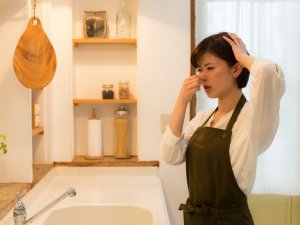
Usually there are some smells from the kitchen that leak into the entire home. Whether the smells come from food, the oven, the pipes, the fridge, or elsewhere, if you want to get rid of bad odors and give your kitchen a pleasant and clean smell, use the following tricks.
1. Don’t put food in the dishwasher
This is more than just a trick. It is a tip that will prevent the drain from clogging or smelling bad.
- After each meal, dispose of the food scraps before putting them in the dishwasher.
- After washing, clean any residue and grease and pour three cups of boiling water mixed with a spoonful of baking soda over the drain to clean the pipe.
- Repeat this procedure at least once a week.
Also read: How to Use Lemon and Other Natural Cleaning Products
2. Clean the fridge
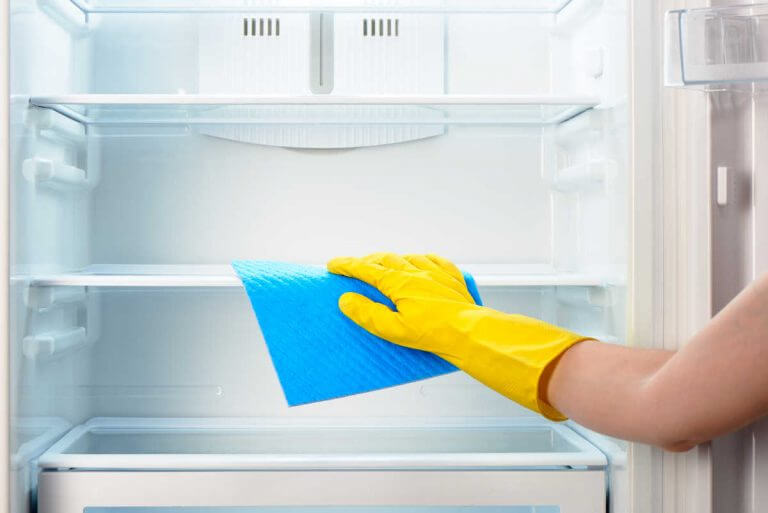
If the source of the bad smell in your kitchen is the fridge, clean it with water and vinegar.
- Check for decaying food, and after you clean it out, place a lemon slice into four pieces in the fridge.
- The lemon will give the appliance a good aroma in addition to absorbing bad smells.
It is good to clean your fridge often to avoid the growth of fungus and bacteria.
3. Eliminate grease smells
It is normal for the smell of grease to spread around the house after cooking.
- To eliminate it, pour 2 cups of white vinegar into a pot on the stove after you’ve finished cooking.
- Vinegar absorbs food odors in the environment.
It’s also essential to wash pots and pans immediately after cooking to prevent the grease smell from permeating the kitchen.
If the grease is difficult to remove, boil water in the pots with vinegar and orange peels.
4. Get rid of bad odors on your hands
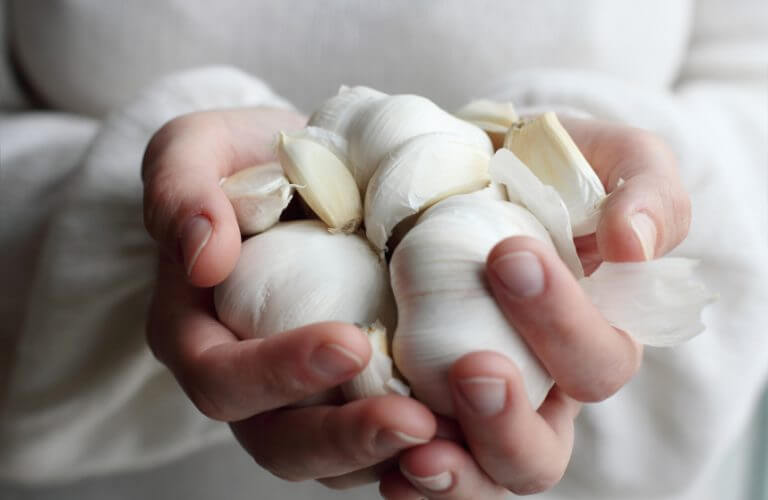
There are foods that can leave an annoying long-lasting smell on our hands, like onions, garlic, or fish.
If this happens to you, just rub half a lemon on your hands. The lemon will immediately absorb and remove the annoying smell. It’s amazing!
5. Clean your sponges
Since they come into contact with most of the waste and grease from our plates, the sponges that we use to clean cutlery and other culinary instruments are a source of bad smells.
Therefore, try to wash them well when you finish your work, and eliminate any food remains from your sponges.
Then leave them in direct sunlight: the UV radiation helps to combat bacteria living on the sponges.
6. Clean your microwave
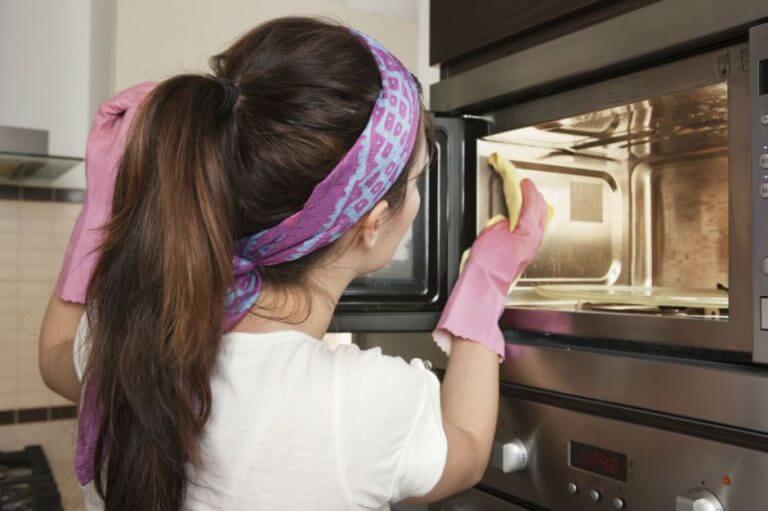
- Place a lemon cut in half inside a glass container with hot water.
- Leave it in the microwave for 5 minutes. The steam will help loosen the grease on the walls and door, and will absorb bad smells.
- Then wipe the microwave with vinegar to clean it completely.
7. Avoid bad odors in the trash
If it’s not time to take out the garbage yet, take some precautions so that bad odors do not invade your kitchen.
- Sprinkle baking soda on the bottom of the bag with a lemon slice. This simple combination will minimize unpleasant smells.
8. Clean the cutting board
The cutting board is one of the most used utensils in the kitchen. It is utilized with almost every food, so wash it well.
- Combine a dash of salt with lemon juice, sprinkle it on the board, and rub for a few seconds. This mixture will absorb all the smells accumulated on the board.
We recommend: 8 Tips to Help You Eat More Vegetables
9. Fill the kitchen with a pleasing aroma
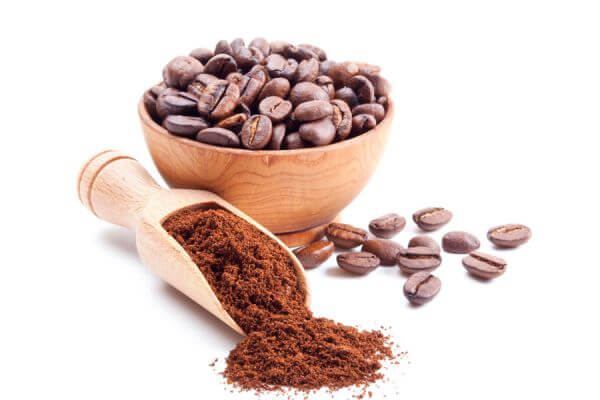
In addition to avoiding bad smells, it’s important to promote an aromatized atmosphere in your kitchen.
- Place some coffee beans on a plate and put it on the top of the fridge. This will allow their rich aroma to fill the entire kitchen.
- You can also soak a cotton ball in vanilla extract and leave it different corners of the kitchen.
10. Clean your kitchen often
To prevent odors and grease from being left on crockery and kitchen surfaces, wash constantly while cooking.
Wash the utensils after use, and then rub walls and surfaces with a cloth dipped in vinegar to degrease them and prevent them from being stained.
All cited sources were thoroughly reviewed by our team to ensure their quality, reliability, currency, and validity. The bibliography of this article was considered reliable and of academic or scientific accuracy.
- Beumer, R. R., & Kusumaningrum, H. (2003). Kitchen hygiene in daily life. In International Biodeterioration and Biodegradation. https://doi.org/10.1016/S0964-8305(03)00041-6
- Cogan, T. A., Slader, J., Bloomfield, S. F., & Humphrey, T. J. (2002). Achieving hygiene in the domestic kitchen: The effectiveness of commonly used cleaning procedures. Journal of Applied Microbiology. https://doi.org/10.1046/j.1365-2672.2002.01598.x
- Rusin, P., Orosz-Coughlin, P., & Gerba, C. (1998). Reduction of faecal coliform, coliform and heterotrophic plate count bacteria in the household kitchen and bathroom by disinfection with hypochlorite cleaners. Journal of Applied Microbiology. https://doi.org/10.1046/j.1365-2672.1998.00598.x
- Taché, J., & Carpentier, B. (2014). Hygiene in the home kitchen: Changes in behaviour and impact of key microbiological hazard control measures. Food Control. https://doi.org/10.1016/j.foodcont.2013.07.026
This text is provided for informational purposes only and does not replace consultation with a professional. If in doubt, consult your specialist.








